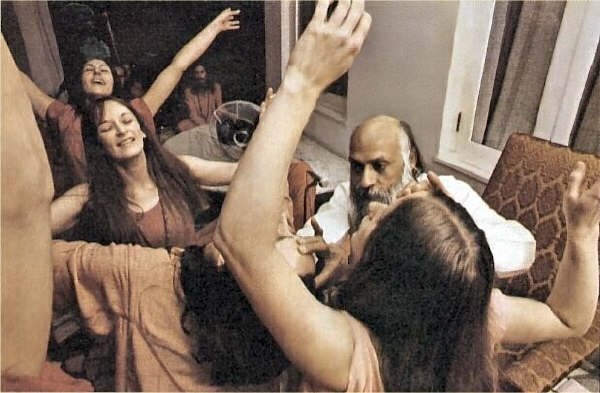BE QUIET, AND LOVING AND FEARLESS.
Three things Buddha says: Be quiet — learn to be silent more and more — AND loving, because if your silence is not loving it will make you insensitive. Then your silence will be that of a cemetery — dull, dead. It will not be a silence which can celebrate, it will not be a silence which can sing and dance.
It will not be a silence which can bloom in a thousand and one flowers. Hence, Buddha immediately says: it should be loving.
And love is possible only if you are fearless; if you are afraid you cannot be loving. The man who is afraid of anything — death, the police, the magistrate, the government — the man who is afraid of anything can't love.
And all fears are basically fears arising out of death. The fear of the policeman is also the same, because he can kill, he can shoot you. The fear of the government is nothing but the fear of violence — the government can kill more powerfully than anybody else.
What is the fear of the magistrate and the law? — because the magistrate has the power to send you to the gallows or he can give you a life sentence. You are afraid. But deep down all fear is of death… and death is a myth. It has never happened, it never happens, it is never going to happen.
The meditator comes to know the falsity of death, and in that very moment all fear disappears; he becomes fearless.
Remember, Buddha is not saying be brave, he is saying be fearless. That is a totally different dimension. There are three words to be understood. One is the coward, who is continuously afraid; everything makes him fearful, whether valid, invalid, possible, impossible. He goes on living in the fears of his own imagination, he creates his own nightmares.
Then there is the brave man, who is the opposite of the coward. And we have praised the brave man very much, but the brave man is nothing but the coward standing on his head; he is the same type of man. It is not that the brave man has no fears — he has fears, but in spite of them he goes on fighting, he goes on moving in a direction where he knows there is fear. But the fear gives him a challenge; to fight with the fear becomes his ego trip. He is the brave man.
Buddha is not talking about the brave man. He is saying simply: Be fearless. When you are fearless you are neither a coward nor brave, because both are rooted in fear. The coward has succumbed to fear and the brave is trying to win over fear, but both are concerned with fear. And the fearless one has simply dropped the whole thing. He is neither brave nor cowardly. He knows there is no death, there is nothing to be afraid of and there is nothing to be brave about.
This is a different dimension, a transcendence of the duality of cowardice and bravery.
Be fearless, be loving, be silent, and you will be wise. This is his definition of wisdom.
OSHO


